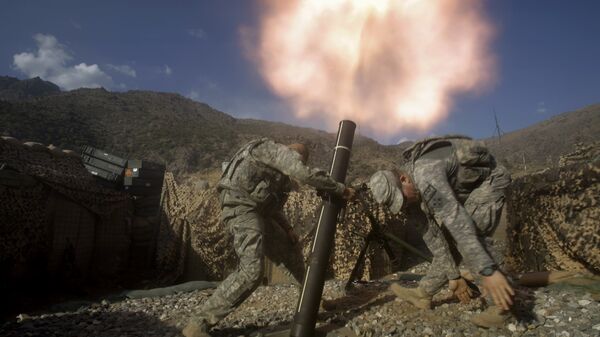The American Institute of War and Peace Studies polled 5,038 Afghans in 34 provinces and found that approximately 46% of those surveyed were in support of US and NATO troops exiting Afghanistan once a deal is agreed upon, while only 33% would prefer the troops to remain.
According to the Associated Press, 61% of participants responded to the poll online, and the other 39% answered the questions in person. Of those surveyed, 3,274 were identified as men and 1,764 were listed as women.
The survey, which was conducted from November 23 to December 20 and has a 5% margin of error, also revealed that 80% of respondents believed a political solution was the only way to bring a conclusion to conflict in the area. The remaining 20% believed a military solution was possible.
As for the individuals brokering the deal, 41% of respondents favored the appointment of US Special Representative for Afghanistan Zalmay Khalilzad as chief negotiator, and 39% opposed the decision. The other 20% polled said they had no opinion either way on the matter.
“The majority of Afghans surveyed said they feared their homeland would descend into civil war if America pulls out its troops without first getting a peace deal,” reported the Associated Press.
The publication of this survey comes just days after it appeared that the Taliban and Kabul were unable to reach an agreement on the timing of a ceasefire agreement.
"The reduction of violence is not clear, we want a ceasefire, which is why we insist on a ceasefire. War is not in the interest of the Taliban and so far didn't bring or get any achievements," Sediq Sediqqi, spokesman for Afghan President Ashraf Ghani Ahmadzai, said on Saturday.
On the other hand, Taliban Attorney General Jalaluddin Shinwari told Sputnik that they viewed a reduction in violence as a stepping stone toward a ceasefire and noted that “both sides should be flexible” on the matter.
US Secretary of Defense Mark Esper announced Wednesday that he was “confident” the US could reduce the number of its military troops in Afghanistan from approximately 12,000 to as few as 8,600 “and not affect our mission.” That said, it is unlikely that all US service members leaving Afghanistan or other areas would return home to their families, as additional troops are needed to “compete with Russia and China,” according to Esper.
The following day, US Marine Gen. Frank McKenzie, commander of the US Central Command, told Marine and sailors aboard the USS Bataan that he is “not sure how long” troops will be in the Middle East.
“We’ll work that out as we go ahead. Could be quite a while, could be less than that, just don’t know right now,” he said.


